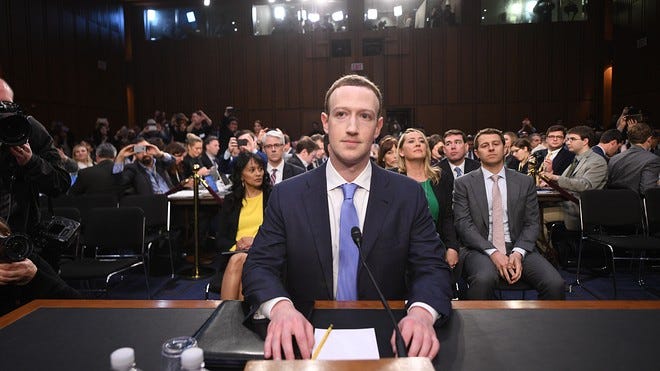The arbitrary overlords
Long overdue, but we should all be concerned about Trump's ousting at the power social media platforms wield.
Although action against Trump's incendiary, but particularly his false language - and Parler, Gab's distribution of it - was long overdue, we should all be concerned about the ousting's significance.
It underlines where media power now lies. It will emasculate Trump's immense impact on the public sphere. Couched by Big Tech in the language of terms and conditions of use broken - rules long exceeded by Trump - the action was up to the final say-so of a few Big Tech companies' chief executives.
Clearly, Facebook in particular, only took action when power had already half exited the room. These executives are chiefly accountable to the market. In some cases, they came under pressure from employees. You have to wonder about the variable treatment other world leaders will get if they did similarly? My guess would turn on how lucrative the market, their employees' level of interest in the country, and the leader's prospects imminently losing power. In that sense, the decisions were arbitrary, if not cowardly and self-serving.
In the tech world, long beholden to The California Ideology (a mix of socially progressive and economically conservative thinking) - the banishing is a particular anathema to ideas held dear. Although there have been many instances to prove the contrary now holds, for many in tech, information still "wants to be free", and ideas, just like the original architecture of the Internet, are supposed to "detect censorship as damage and route around it."
The problem with these technological determinist out-of-control arguments is that it turns out that technology is only out of control if you let it be so. China has a thriving "Splinternet" behind a censorious firewall, some cryptocurrencies exist, increasingly regulated - but only within those jurisdictions in which they are tolerated. When rightwing dilettante Milo Yiannopoulos was banned from Twitter and YouTube, he disappeared from view and lost all power.
But there is also a normative passion to these libertarian arguments that go beyond what tech allows us to do — that it is morally wrong to censor, which is why some not so long ago still defended the existence "upskirt" subreddits on Reddit. Yet child pornography was the one hill free speech absolutists never chose to die on, and this small concession turns out to be fundamental — it sinks their whole argument.
No right is absolute then, even free speech, it ends where it crashes into others' rights. These rights' boundaries are not fixed, and continually needs to be renegotiated, and disputes settled. The pressing question is then not the utopian one whether we need censorship — but rather who is best to draw these lines, enforce them and who is best to settle disputes?

